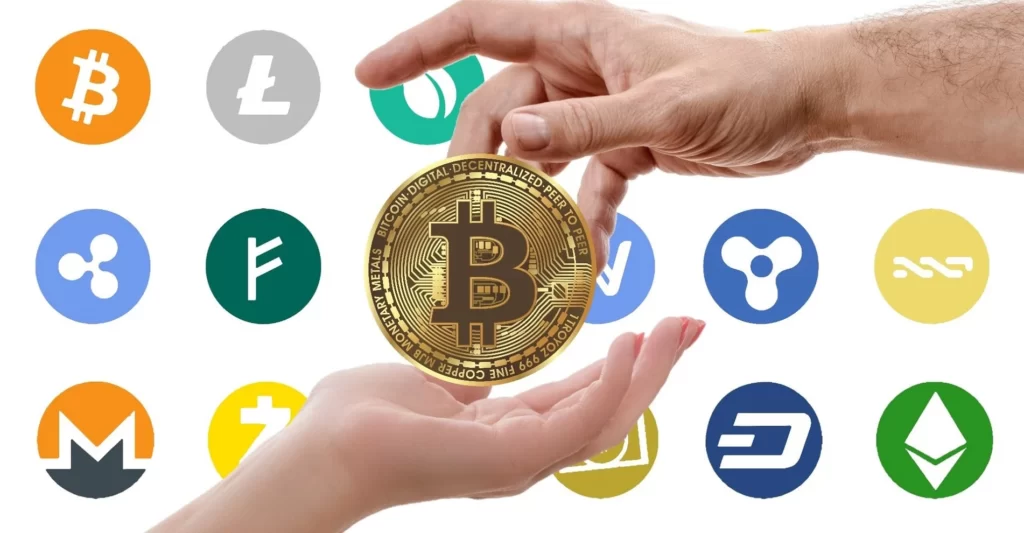
Token is a term that is frequently heard in the cryptocurrency community. In fact, you may hear Bitcoin referred to as a “crypto token” or something similar, because – theoretically – all crypto assets may be referred to as tokens.
Crypto tokens are programmable assets that may be created and stored on current blockchains. While they frequently have extensive compatibility with the network’s cryptocurrencies, they are a whole new digital asset class.
Tokens are units that are built on top of existing blockchains.
Tokens function within an existing blockchain to enable the development and execution of one-of-a-kind smart contracts, which frequently provide ownership of assets outside of the blockchain network. Tokens may be sent and received and can represent units of value such as electricity, money, points, coins, digital assets, and more.
Crypto tokens are a sort of cryptocurrency that symbolizes an item or a specific use and has its own blockchain.
How Crypto Tokens work?
To monitor transactions, blockchain employs a decentralized, or distributed, ledger that lives on a broad variety of independent computers. Each node organizes additional data into blocks, which are then chained together in “append only” mode. Because of the append-only structure, no one on any node can change or remove data from previous blocks. They can only contribute to the chain, which is one of blockchain’s primary security characteristics.
Cryptocurrency tokens provide an append-only safe record of cryptocurrency that is linked to a special-access contract that can connect to a variety of assets.
The token-based special-access contract can grant users access to assets like as cash, crypto coins, reward points, or even digital material such as music, art, a video clip, or a movie.
The tokens enable the ownership of a blockchain-verified private smart contract linked to that asset.
Coins Vs Tokens
While the terms “coin” and “token” are sometimes used interchangeably, they refer to different sorts of assets.
A crypto coin is often employed as the native coin of a blockchain, which is used to exchange cash, store value, and so on. Tokens, on the other hand, are not native to the blockchain on which they operate.
Crypto Token Types
Currently, there are four main categories of tokens
- Payment Tokens: Payment tokens are the most well-known and extensively utilized types of cryptocurrency. These crypto tokens are used for buying and selling in the same way that the US dollar or the Euro are, only they are not backed by a specific government. Payment tokens are units of value that may be traded for other currencies that exist within the blockchain of crypto networks such as Bitcoin, Monero, and Ethereum. Third-party custodians or exchanges are also available to convert payment tokens into legal tender currencies such as the US dollar. People are increasingly utilizing these tokens to purchase products and services, albeit the aggregate number of retailers who accept them remains tiny.
- Utility Tokens: These crypto tokens provide its owners with access to a product or service that is either now available or in the works. They are most typically employed as a fundraising mechanism for initial coin offers (ICOs), as a placeholder for the crypto currencies that buyers would get when the new coins go live on the network. The term for these tokens stems from the fact that they may be used to purchase an item or service from the issuer. Because they exist on an actual blockchain, their owners can be confirmed, and they can be readily swapped.
- Security Tokens: Security tokens represent the rights and duties associated with securities such as stocks and bonds. A security token is often used to represent a stake of the firm that issued it. They can reflect legal ownership of an asset or a piece of an asset, such as real estate, stocks, exchange-traded funds (ETFs), and so on.
As a result, they are more strictly controlled than ordinary tokens. Companies may issue security tokens instead of traditional stock shares to raise funds more cheaply, or because the tokens provide immediate settlement and simpler cross-border trade.
- Non-fungible Tokens: Also known as NFTs, these tokens have made the news lately because of the eye-popping sales prices of single NFTs connected with works of art, individual tweets, and sports memorabilia. They exist on pre-existing crypto networks, with ETH being one of the most popular. These tokens have private contracts that can be clearly distinguished from any other token in existence. Because of that feature, they are used by athletes, artists, musicians, and other creators as a way to connect with collectors, who see them as digital one-of-a-kind assets. Because the consumer may still reproduce the underlying material, they cannot copy, sell, or pirate it, NFTs have created new marketplaces for digital art and memorabilia. Some persons have also issued NFTs that provide ownership of non-digital assets that are one-of-a-kind, such as real estate.
Tokens can be used for investment purposes, to store value, or to make purchases.
The Takeaway
As the blockchain industry matures, the number of distinct digital assets will only increase to meet the diverse demands of all ecosystem members, ranging from business partners to individual users. Given that generating new assets in the digital world is less limiting than in the physical realm, these digital assets are widely predicted to change the way many sectors work, interact, and produce value, enabling a plethora of new social and economic possibilities.


2 Responses
[…] liquidity pool is a crowdsourced pool of tokens locked in a smart contract that offer liquidity in decentralized exchanges (DEXs) in an effort to […]
[…] an ICO, a blockchain-based firm creates a limited number of its own native digital tokens and sells them to early […]